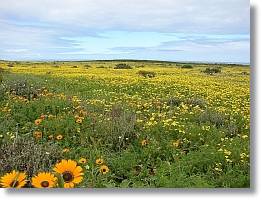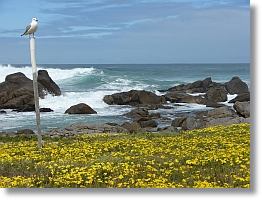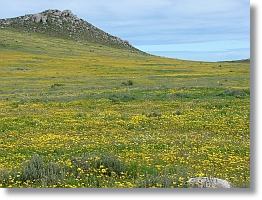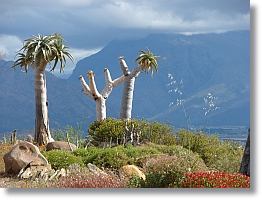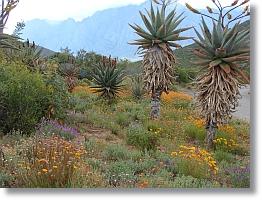- HOME
- CONTACT US
- Comments
- Cape Town
- Cape Town at night
- Stellenbosch
- Simons Town
- Kalk Bay
- Hermanus
- Genadendal
- Greyton
- Paarl
- Franschoek
- Mamre
- Butterfly World
- World of Birds
- The Argus Tour
- flora and fauna
- West coast spring flowers
- Big-and-small-five
- Space Photography
- South Africa geography
- Cape Carnival
- Penguin rescue
- dolphin-killings-in-denmark
- Cape Town Weather
Menu
The West Coast National Park
During the months of August and September, the entire West Coast region transforms into a sea of wild flowers. Particularly beautiful sites can be found in the small town of Darling, on the West Coast National Park and along the coast at Cape Columbine and Lambert's Bay. Inland Clanwilliam is the center of the bloom. The information centre in Darling, Saldanha and Clanwilliam offer guided tours. You also get a clue about where the flowers bloom now.
The flowers open between 10h and 16h. As the flowers turn toward the sun, it is recommended to drive in the morning towards the west and in the afternoon eastwards.
Most visitors are so impressed by the variety of flowers that they can be clearly identified by there dirty knees. But remember, do not pick flowers. If you are not able to take photographs, you can acquire pictures at the information centre, or simply contact our editor from our website.
Beautifully narrated by David Attenborough
The West Coast National Park with its lagoon and wetlands is also of enormous
importance
to wildlife. In this area live,either permanently or seasonally, 50 per
sent of the world’s population of swift terns, 25 per cent of the
world’s population of Cape gannets, 15 per cent of the world’s
population of crowned cormorants, and 12 per cent of black
oyster-catchers.
The tragically declining population of jackass penguins also find a sanctuary on the islets. From September to April of each year there is an almost unbelievable influx of migrating wading birds such as curlew sandpipers. They nest, raise their chickens, and in August set out on a 15 000 km flight which terminates for most of them in the area of the West Coast National Park.
Some 250 species of birds frequent Langebaan (long channel). There are
huge flocks of Cape weavers, pied and wattled starlings,European
bee-eaters, turnstones and swift terns. A tarmac road runs around the
verges of the lagoon and traverses the Postberg area, with side roads
open for the public during the spring flower season.
Web design and publishing by Ernst Weinert
